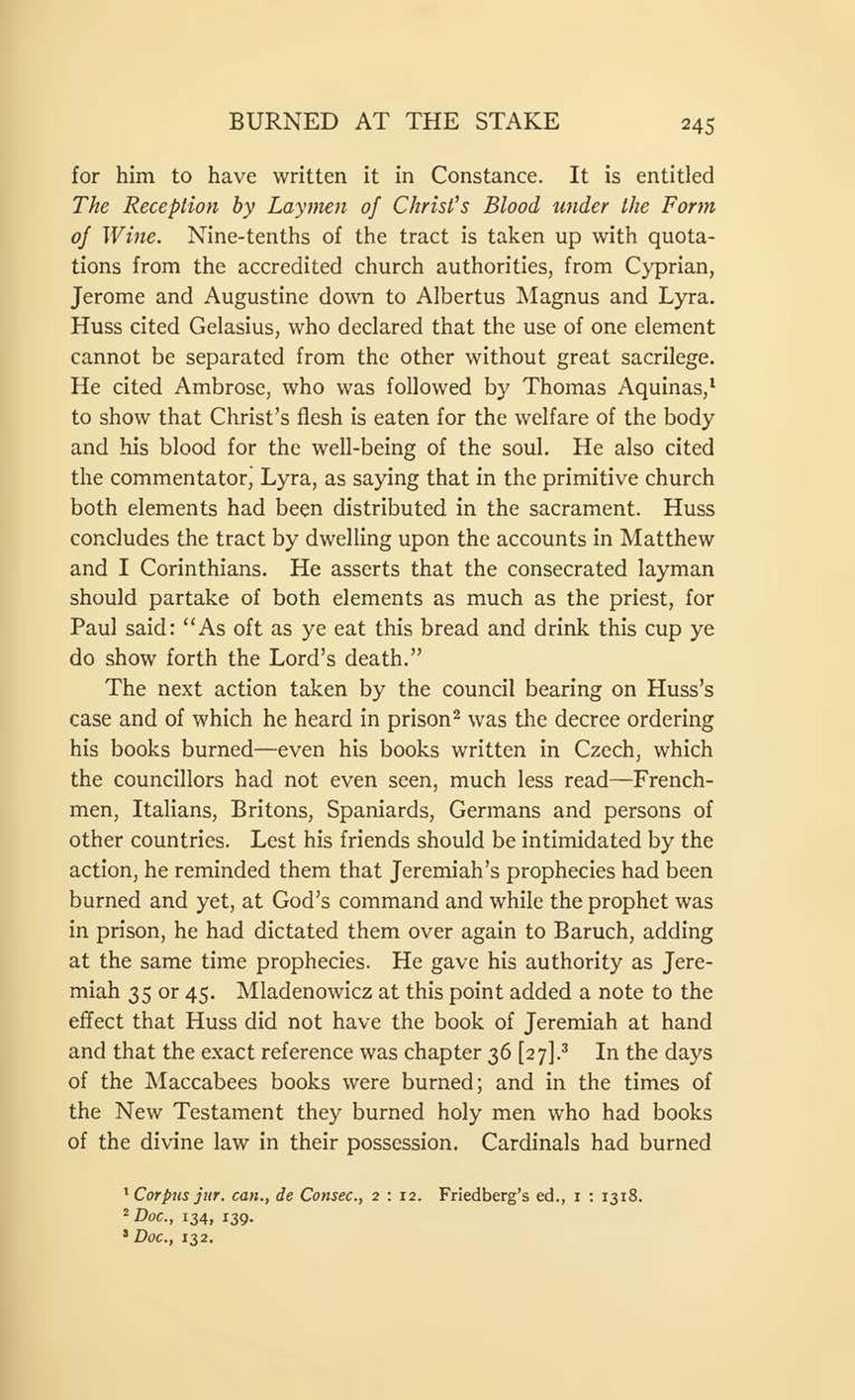for him to have written it in Constance. It is entitled The Reception by Laymen of Christ’s Blood under the Form of Wine. Nine-tenths of the tract is taken up with quotations from the accredited church authorities, from Cyprian, Jerome and Augustine down to Albertus Magnus and Lyra. Huss cited Gelasius, who declared that the use of one element cannot be separated from the other without great sacrilege. He cited Ambrose, who was followed by Thomas Aquinas,[1] to show that Christ’s flesh is eaten for the welfare of the body and his blood for the well-being of the soul. He also cited the commentator, Lyra, as saying that in the primitive church both elements had been distributed in the sacrament. Huss concludes the tract by dwelling upon the accounts in Matthew and I Corinthians. He asserts that the consecrated layman should partake of both elements as much as the priest, for Paul said: “As oft as ye eat this bread and drink this cup ye do show forth the Lord’s death.”
The next action taken by the council bearing on Huss’s case and of which he heard in prison[2] was the decree ordering his books burned—even his books written in Czech, which the councillors had not even seen, much less read—Frenchmen, Italians, Britons, Spaniards, Germans and persons of other countries. Lest his friends should be intimidated by the action, he reminded them that Jeremiah’s prophecies had been burned and yet, at God’s command and while the prophet was in prison, he had dictated them over again to Baruch, adding at the same time prophecies. He gave his authority as Jeremiah 35 or 45. Mladenowicz at this point added a note to the effect that Huss did not have the book of Jeremiah at hand and that the exact reference was chapter 36 [27].[3] In the days of the Maccabees books were burned; and in the times of the New Testament they burned holy men who had books of the divine law in their possession. Cardinals had burned
